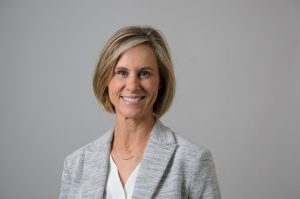Traditional job interviews are all kind of the same.
“Hello, how are you?”
“Thanks for meeting with me today.”
Shake hands. Sit down. Answer a series of questions about your professional experience and interpersonal skills. Show the potential employer a snapshot of who you are, who they might expect to hire if they offer you the job.
In the post-pandemic world, while you might substitute the handshake for a virtual greeting over Zoom, the formula is still the same.
But what if that traditional interview format creates barriers for you?
For neurodivergent jobseekers – people with autism, ADHD, dyslexia, and other cognitive differences – traditional hiring processes and a general lack of knowledge about neurodiversity can create obstacles to demonstrating their talents.
Getting it right: More than just words
“The interview is where we typically tend to value social priorities – a good firm handshake, self-promotion, physical presence,” and such social expectations may be difficult to navigate for some neurodivergent candidates, says Stephen DeStefani, leader of the Neurodiversity Program at Wells Fargo.
Wells Fargo is the signature and founding corporate partner of UConn’s Center for Neurodiversity and Employment Innovation, and for good reason – their company’s Neurodiversity Program is highly successful. Since its launch in 2020, the program has hired more than 290 employees, and 20 interns, and has a retention rate of 97%.
“There’s a difference between a company that says, ‘We’re autism friendly,’ but then it hasn’t done a thing to truly change how they recruit, assess, and retain neurodivergent people ,” says Judy Reilly, the director of UConn’s center, “versus a company that has actually transformed how it recruits, how it interviews, how it screens, how it onboards, and then how it supports and retains individuals through education, information, and changing its practices.
“And Wells Fargo is getting it right on the employer side.”

Since partnering with UConn’s center, Wells Fargo has hired five recent UConn graduates through its Neurodiversity Program, including Nomi Fletcher ’22 (BUS), who majored in management information systems at UConn and now works for Wells Fargo as an engineering associate.
For Fletcher, who learned about the company’s Neurodiversity Program from Reilly and the center, the interview process at Wells Fargo was vastly different from the traditional interview they were used to encountering.
“It was about a week long, and each day, dozens of us candidates would sit on a call and participate in activities and learn more about Wells Fargo,” Fletcher says. “I liked that I wasn’t just being assessed on how well I could perform under pressure in an interview. Along with the final interviews on the last day, there was a coding assessment that helped me show my ability to think through problems and build practical solutions.”
That difference is entirely by design, explains DeStefani, and part of a more considerate and accommodating skills-based hiring model that’s meant to be accessible, “we don’t just offer generic accommodations or bolt on supports that do not actually meet applicant needs.”
A support structure that goes beyond the interview
Accessibility doesn’t end at the interview, either. Once hired, employees in the program are provided with unique supports, like one-to-one coaching and buddies that can help them transition to their new roles – and help them to be successful within the company. Managers who participate in the employment program are selected carefully, and coaches and managers go through neurodiversity training and education created and delivered by UConn’s center.
“Most important is the support structure, so buddy programs and career coaches and skills development capabilities,” says DeStefani. “One of the keys to our success is the fact that we have a fitness-based selection criteria to approve the hiring managers that participate in the program. We want folks who are committed to being great people managers, developing their already outstanding emotional intelligence and their ability to practice empathy, and have them lean into the community and develop these individuals on their career paths.”
For Fletcher, that support has come from a manager and a team they’ve found is willing to answer questions and be clear about expectations.
“I also work flexible hours and have accommodations for screen reading and captioning on calls,” Fletcher says. “Flexible hours help me a lot because my energy levels fluctuate, and it’s nice to be able to work at times where I’m feeling at my best. Screen reading and captioning helps me be able to process what is being said to me, and what I’m reading, and gives me a fair chance to be able to understand everything around me.”
Wells Fargo’s culture is one that Fletcher has found welcoming.
“I like that the people I work with are down-to-earth and willing to explain what they do,” they say. “I’m surrounded by tons of smart and capable people who want to work together to make the best product possible.”
And that, too, is by design, DeStefani notes, because of the many ways in which Wells Fargo values diversity as a business enabler.
“We often think about the elements of diversity being diversity of your segment, or your experience, or your background, and diversity of the mind is another common consideration,” he says. “Through leverage and access to this community, through those more considerate skills-based accommodating practices, we’ve tapped into a pool of talent that thinks about things differently. They process information and the world differently, and we often hear about the ongoing search for out-of-the-box thinkers, or creative problem solvers, or just someone to think about things differently.”
The people I work with are down-to-earth and willing to explain what they do. I’m surrounded by tons of smart and capable people who want to work together to make the best product possible. — Nomi Fletcher '22
“We feel, and we’ve confirmed, that we have tapped into a large talent pool that offers skills and capabilities and brings a tremendous amount of value to the table.”
Putting UConn research to work
Another part of the partnership between UConn’s center and Wells Fargo is the access it provides to academic research in the topic of neuro-inclusive employment. There is a substantial gap when it comes to evidence-based knowledge about what works and does not work when companies want to include more neurodivergent employees in their organizations.
Wells Fargo’s sizeable program and length of experience provides researchers with access to data that can inform those best practices. The company is the first to take part in a 12-month study that the center launched in coordination with researchers at the UConn School of Business.
“We’re putting research behind this,” explains Reilly, “and we’re aggregating the best practices around what it takes to be an employer who’s doing this really, really well. What are those dimensions of excellence?”
The study is focused on the employment experience of individuals hired through Wells Fargo’s Neurodiversity Program – the getting and the keeping of the job – and is set to launch in early 2024. Researchers are interested in working with additional companies to increase the sample of neurodivergent individuals and accumulate broader data about their employment experiences.
The overall goal is to launch a public Neurodiversity Inclusion Index that potential jobseekers can use to evaluate work environments that will meet their needs and that potential employers interested in working with neurodivergent candidates can use to evaluate if their hiring and retention processes are meeting those research-backed dimensions of excellence.
“There’s a lot of talk about the need for this kind of an index,” Reilly says, “and as a university, we have this unique opportunity to be the creator of an index, versus a for-profit company doing it or an individual company doing it. Our partnership with Wells Fargo provides a singularly unique opportunity for a school to contribute to the body of knowledge that is needed in this area, and we are so thankful to Wells Fargo for their partnership and impact in this space.”
For more information about the Center for Neurodiversity & Employment Innovation – a signature program of Werth Institute for Entrepreneurship and Innovation – visit werth.institute.uconn.edu.



